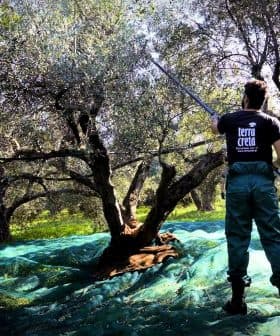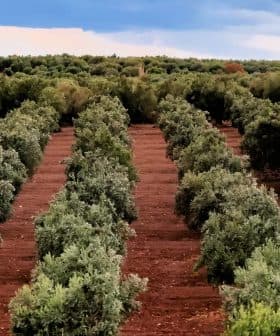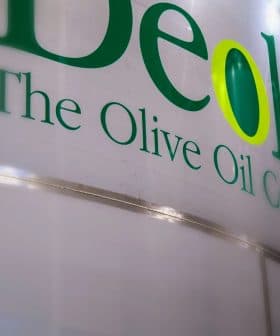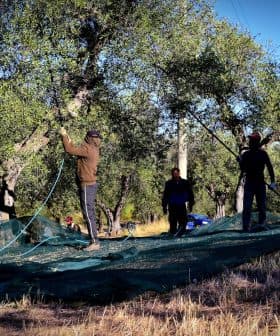Registration of Kalamata Olives as Intellectual Property Renews Controversy in Greece

Kalamata table olives with a Protected Designation of Origin have received international property protection through WIPO, originating from the Kalamon cultivar in Messenia, Greece. The dispute over the use of the Kalamata name for olives produced outside of Messenia has led to legal battles and changes in regulations, impacting the export market for Greek olive producers.
Kalamata table olives with a Protected Designation of Origin (PDO) have received international property protection after being registered with the World Intellectual Property Organization (WIPO) under their Greek name, Elia Kalamatas.
Kalamata PDO table olives come from the indigenous Greek Kalamon cultivar produced in the Messenia prefecture in southern Peloponnese.
WIPO, a legally binding international register for Appellations of Origin (AOs) and Geographical Indications (GIs), will protect Kalamata PDO table olives from imitations and counterfeiting in 76 countries worldwide.
See Also:Europe Strengthens Protections for Geographical IndicationsKalamata olives from Messenia also bear a protected geographical indicator from the European Union since 1996.
“We unwaveringly continue our efforts to defend and protect the world-famous Protected Designation of Origin despite those who try by all means to abolish it,” the Messenia Union of Agricultural Associations, which initiated and monitored the WIPO application for Kalamata olives, said in a statement.
“We empower and invest in iconic PDO appellations with vision, plan, scientific intelligence and seriousness,” they added.
However, the Greek National Interprofessional Association of Table Olives (Doepel) contradicted the union’s statement, saying it was inaccurate and raised suspicions.
“It is clear, as we have stressed many times, that no one opposes or tries to abolish the Elia Kalamatas PDO,” the interprofessional said. “However, it should be noted that the [Kalamata table olive PDO] exhibits no export potential whatsoever. In particular, the largest quantity exported since 1996… has not exceeded 247 tons — 0.30 percent of Greek exports of the Kalamon/Kalamata variety.”
The dispute between the Messenia Union and the national interprofessional shows that the coveted Kalamata appellation, which confers worldwide recognition to the product, continues to divide the Greek table olive sector.
Producers of Kalamon olives based in Messenia claim that the Kalamata name designates a PDO product and should be reserved only for olives produced in the region.
Kalamon producers in other regions argue that the Kalamata name should be used freely throughout Greece since the olives come from the same cultivar.
The Greek state and the country’s supreme court have also been drawn into the dispute, underscoring the chasm between producers.
In September 2022, the Greek government issued a ministerial decree allowing all producers of Kalamon table olives in the country to use the Kalamata brand name.
The 2022 decision to re-register Kalamata olives on the national list of plant varieties, allowing producers across Greece to use the name, was an effort to reverse a supreme court decision that overturned the 2018 ministerial decree that initially registered Kalamata olives on the list.
The freeing of the Kalamata brand name significantly boosted exports of Kalamon olives from Greece, marketed as Kalamata or Kalamata PDO for those produced in Messenia, meeting the PDO requirements.
However, it enabled olive producers in other countries to promote their Kalamon olives as Kalamata, directly competing with Greek producers.
The Messenian table olive producers have again appealed the 2022 ministerial decree to the Greek Council of State, and the Supreme Court’s decision is still pending.
In bountiful years, Kalamon/Kalamata olives production in Greece can exceed 100,000 tons. Around 80 percent of production is destined for export to international markets with an export value of more than €200 million.









